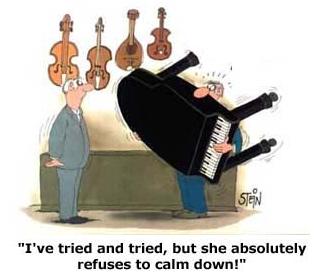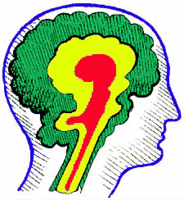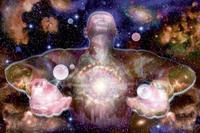|
This is my dynamic, frequently updated homepage. This is a NewsLog, also known as a WebLog or Blog.
Everything is evolving, so don't assume too much.
People to watch:
Adina Levin
Andrius Kulikauskas
Britt Blaser
Catherine Austin Fitts
Chris Corrigan
Clay Shirky
Dan Gillmor
Dave Pollard
David Allen
David Weinberger
Dewayne Mikkelson
Dina Mehta
Doc Searls
Elisabet Sahtouris
Elizabeth Lawley
Euan Semple
Florian Brody
Frank Patrick
Gen Kenai
George Dafermos
George Por
Graham Hancock
Greg Elin
Hazel Henderson
Heiner Benking
Inspector Lohman
Jean Houston
Jerry Michalski
Jim McGee
Jim Moore
John Abbe
John Perry Barlow
John Robb
Joi Ito
Jon Husband
Jon Lebkowsky
Jon Udell
Jonathan Peterson
Judith Meskill
Julian Elvé
Julie Solheim
Kevin Marks
Lawrence Lessig
Leif Smith
Letecia Layson
Lilia Efimova
Lisa Rein
Marc Canter
Mark Oeltjenbruns
Mark Pilgrim
Mark Woods
Martin Dugage
Martin Roell
Mary Forest
Matt Mower
Max Sandor
Michael Fagan
Mike Owens
Mikel Maron
Mitch Kapor
Mitch Ratcliffe
Nathalie dArbeloff
Netron
Noam Chomsky
Paul Hughes
Peter Kaminski
Phil Wolff
Philippe Beaudoin
Ray Ozzie
Raymond Powers
Rebecca Blood
Roger Eaton
Roland Tanglao
Ross Mayfield
Scott Lemon
Sebastian Fiedler
Sebastien Paquet
Skip Lancaster
Spike Hall
Steven Johnson
Stuart Henshall
Thomas Burg
Thomas Madsen-Mygdal
Thomas Nicholls
Timothy Wilken
Todd Suomela
Tom Atlee
Tom Munnecke
Tom Tomorrow
Ton Zijlstra
Lionel Bruel
Loic Le Meur
Nancy White
Mark Frazier
Merlin Silk
Robert Paterson
Colby Stuart
Nova Spivack
Dan Brickley
Ariane Kiss
Vanessa Miemis
Bernd Nurnberger
Sites to watch:
Edge
Junto
Absara
Rhizome
Nanodot
HeadMap
Openworld
FutureHi
Imaginify
Do No Harm
BoingBoing
Smart Mobs
Webcamorama
MetaFilter
NotThisBody
Disinfopedia
YES Magazine
Collective Web
WorldChanging
Disinformation
Escape Velocity
Space Collective
Friendly Favors
Emergent by Design
Independent Media
Global Ideas Bank
Forbidden Science
Greater Democracy
ThoughtsOnThinking
Disclosure Project
Explorers Foundation
Manufacturing Dissent
Collective Intelligence
Action without borders
Free Expression Network
Co-intelligence Institute
Electronic Frontier Foundation
French:
Emmanuelle
Manur
Elanceur
Loeil de Mouche
IokanaaN
Blog d'Or
Le Petit Calepin
GeeBlog
Absara
Guillaume Beuvelot
Ming Chau
Serge Levan
Jean Michel Billaut
C'est pas Mécanique

I live in Toulouse, France where the time now is:
01:06
Unique Readers:

Primarily
Public Domain
Everything I've written here is dedicated to the
Public Domain.

The quotes from other people's writings, and the pictures used might or might not be copyrighted, but are considered fair use. Thus, overall, this weblog could best be described as being:
Primarily Public Domain. |
Syndication:
 ![Validate my RSS feed [Valid RSS]](http://www.newciv.org/pic/valid-rss.png)
|
| Friday, April 30, 2004 |  |
|
|
|
 Doc Searls: Doc Searls:I believe the Earth has a public domain dedication. More or less. OK, maybe he means that the picture of the Earth is in the public domain. But what if we meant that the Earth itself were in the public domain? Wikipedia has this to say about the public domain:Internationally, the public domain is the body of creative works and other knowledge—writing, artwork, music, science, inventions, and others—in which no person or organization has any proprietary interest (typically a government-granted monopoly such as a copyright or patent). Such works and inventions are considered part of the public's cultural heritage, and anyone can use and build upon them without restriction (not taking into account laws concerning safety, export, etc).
While copyright was created to protect the financial incentive of those doing creative work as a means to encourage more creative work, works in the public domain just exist as such, and the public have the right to use and reuse the creative work of others without financial or social burden. Doesn't completely fit, or does it? Is the Earth a creative work? Either way, imagine if the resources of the Earth were liberated from proprietary interests and couldn't be monopolized. Or does it need a stricter license, that ensures that not only can nobody own the resources for themselves, but nobody is allowed to misuse the resources? Like, you can only use resources that you replenish, and any added value that you've developed must be given back as well.
[ Nature | 2004-04-30 17:40 | | PermaLink ] More >
|
|
| Wednesday, April 28, 2004 |  |
|
|
|
 One of the features in the Li'l Abner cartoon from the 1940s was the strange and lovable Shmoo creatures: One of the features in the Li'l Abner cartoon from the 1940s was the strange and lovable Shmoo creatures:The Shmoo first appeared in the strip in August 1948. According to Shmoo legend, the lovable creature laid eggs, gave milk and died of sheer esctasy when looked at with hunger. The Shmoo loved to be eaten and tasted like any food desired. Anything that delighted people delighted a Shmoo. Fry a Shmoo and it came out chicken. Broil it and it came out steak. Shmoo eyes made terrific suspender buttons. The hide of the Shmoo if cut thin made fine leather and if cut thick made the best lumber. Shmoo whiskers made splendid toothpicks. The Shmoo satisfied all the world's wants. You could never run out of Shmoon (plural of Shmoo) because they multiplied at such an incredible rate. The Shmoo believed that the only way to happiness was to bring happiness to others. Li'l Abner discovered Shmoos when he ventured into the forbidden Valley of the Shmoon, against the frantic protestations of Ol' Man Mose. "Shmoos," he warned, "is the greatest menace to hoomanity th' world has evah known." "Thass becuz they is so bad, huh?" asked Li'l Abner. "No, stupid," answered Mose, hurling one of life's profoundest paradoxes at Li'l Abner. "It's because they're so good!"
Ironically, the lovable and selfless Shmoos ultimately brought misery to humankind because people with a limitless supply of self-sacrificing Shmoos stopped working and society broke down. Seen at first as a boon to humankind, they were ultimately hunted down and exterminated to preserve the status quo. Now, there are several advanced technologies on the horizon that might end up looking like the shmoos. Nanotech, genetic engineering, artificial intelligence, robots. What happens if there's an infinite supply of everything we need, and we succeed in constructing new life-forms, of silicon or DNA, to help serve our needs? Will these new intelligent structures be as cooperative and accommodating as the shmoos? And how would we adjust to having all of our material needs being fulfilled?
We'll have to develop some new ways of finding meaning in life, of course. We can no longer measure ourselves by how good we are at making a living. I think we can manage that. There are many other good things to do in life than just barely surviving or pursuing a bigger car. But some structures will have to be transformed greatly along the way. Not much need for an economic system if we can easily get everything we want.
No chance that we can close down any avenue of technological research, just because the outcome would be "too good" or "too powerful" for us to handle. If it is there to discover, somebody will discover it. We'll just have to evolve our own maturity at the same time, in order to be able to deal with the changed possibilities.
[ Technology | 2004-04-28 09:27 | | PermaLink ] More >
|
|
|
|
 The Guardian has an article about how Google seems to cover up what kind of horsepower they're really sitting on. The Guardian has an article about how Google seems to cover up what kind of horsepower they're really sitting on.[T]ake the number of servers that Google operates. The only figure the company will admit to is '10,000+'. They also claim to have '4+ petabytes' of disk storage, and have let slip that each server is fitted with two 80 gigabyte hard drives. Now a petabyte is 10 to the power of 15 bytes, so if Google had only 10,000 servers, that would come to 400 Gb per server. So again the numbers don't add up. I could go on, but you will get the point. But what it all comes down to is this: Google has far more computing power at its disposal than it is letting on. In fact, there have been rumours in the business for months that the Google cluster actually has 100,000 servers - which if true means that the company's technical competence beggars belief.
Now the interesting question raised by all this is: why the reticence? Most companies lose no opportunity to brag about their technology. (Think of all those Oracle ads.) Is this an example of Google behaving ultra-responsibly - being careful not to hype its prospects prior to an IPO? Or is it a sign of a deeper commercial strategy? The latter is what Garfinkel suspects. 'After all,' 'he says, 'if Google publicised how many pages it has indexed and how many computers it has in its data centres around the world, search competitors such as Yahoo!, Teoma, and Mooter would know how much capital they had to raise in order to have a hope of displacing the king at the top of the hill.' If truth is the first casualty of war, openness is the first casualty of going public. It is an interesting conundrum, as Google indeed appears as a very open and accommodating company. But it seems their secret weapon is not just a clever indexing algorithm, but the fact that they've constructed the vastest distributed computer system in history, making them able to apparently easily and quickly do feats that previously were considered completely unrealistic. It is intriguing that it has considerable business value for them to greatly understate their own accomplishments. And it is intriguing that the Internet no longer is just a flexible routing protocol. The Google hypercomputer has become an unavoidable key to providing what we expect from the net.
[ Technology | 2004-04-28 11:58 | | PermaLink ] More >
|
|
|
|
 I hadn't noticed it before, but in France there's a different way of renting cars. I'm recording it here so anybody else who don't know about it can check it out. It is called achat-rachat, i.e buy & buy back. It is a system the French government set up to lure tourists to France, and make them drive French cars, I suppose, by allowing car companies to lease out cars without taxes or duties to tourists. It is not a normal rental, but a lease arrangement run by the big car manufacturers. You get a new car, full insurance is included, with no deductable, no extra charges, no taxes, and they'll take care of the car as a car rental company would (or should, rather). You only need to be 18, several people can drive that car, and you can go all over Europe with it. But you must be a tourist with permanent residence outside Europe. And you have to arrange for the car weeks in advance, and the lease has to be for at least 17 days. That period would cost roughly the same as a normal car rental. But after that the price drops to considerably less, like 1/3-1/2. So if you need a car for a month, or several months, it beats car rental on all counts. And after the period is over, you just give it back. Or if you for some reason decided you wanted to buy that car, the lease you've paid would be deducted from the sale price. Check out Renault Eurodrive, Peugeot Eurolease and some general information. I hadn't noticed it before, but in France there's a different way of renting cars. I'm recording it here so anybody else who don't know about it can check it out. It is called achat-rachat, i.e buy & buy back. It is a system the French government set up to lure tourists to France, and make them drive French cars, I suppose, by allowing car companies to lease out cars without taxes or duties to tourists. It is not a normal rental, but a lease arrangement run by the big car manufacturers. You get a new car, full insurance is included, with no deductable, no extra charges, no taxes, and they'll take care of the car as a car rental company would (or should, rather). You only need to be 18, several people can drive that car, and you can go all over Europe with it. But you must be a tourist with permanent residence outside Europe. And you have to arrange for the car weeks in advance, and the lease has to be for at least 17 days. That period would cost roughly the same as a normal car rental. But after that the price drops to considerably less, like 1/3-1/2. So if you need a car for a month, or several months, it beats car rental on all counts. And after the period is over, you just give it back. Or if you for some reason decided you wanted to buy that car, the lease you've paid would be deducted from the sale price. Check out Renault Eurodrive, Peugeot Eurolease and some general information.
[ Information | 2004-04-28 14:34 | | PermaLink ] More >
|
|
| Tuesday, April 27, 2004 |  |
|
|
|
 For many years it has been my intention and my ideal to live in the present. Be here, pay attention, take time to smell the roses. Most that I've learned about myself, about others, about philosophy and metaphysics, about being organized, about solving problems, about dealing with conflict, being effective, and about health, happiness, and even enlightenment - it all adds up a very simple truth, the value of BEING right here right now. As opposed to getting lost in mental abstractions and worries about the past and the future; things one should do or that one must avoid; whether one is right or wrong; what other people think, etc. For many years it has been my intention and my ideal to live in the present. Be here, pay attention, take time to smell the roses. Most that I've learned about myself, about others, about philosophy and metaphysics, about being organized, about solving problems, about dealing with conflict, being effective, and about health, happiness, and even enlightenment - it all adds up a very simple truth, the value of BEING right here right now. As opposed to getting lost in mental abstractions and worries about the past and the future; things one should do or that one must avoid; whether one is right or wrong; what other people think, etc.
Why is it so hard, then? I've experienced plenty of proof. The peak moments of my own life were when I was really there. Big complicated problems evaporated the moment one actually showed up to face them. In working with a great many counseling clients, the outcome that made a difference was always that the person actually showed up in the present, rather than going in circles about the past and the future and what they mean. The most inspiring and alive people I've met have invariably been those who basically just were present. The magic goes deeper than words can easily convey.
But currently, for me, it happens much too much in glimpses, rather than as an ongoing thing. For a down-to-earth example, my desk is usually a mess, as is the pile of stuff lying next to my bed. Most of the time I'm just frustrated that I might not be able to find the note I was looking for, and I just step around the pile, or deposit something else on top of it. But once in a while, like every six months or so, I suddenly look at the pile with some degree of shock. "How can anybody work with their papers like that?!?" And I dig into the pile and sort it out. Which isn't really a big deal once I get around to it. For that matter, five minutes of sorting it once in a while would probably take care of it. But when I look at it after six months I get horrified to find ridiculous items at the bottom of the pile, taking most of the space. You know, like, I've wondered for months why the papers always tip over, and when I finally look, there's a pair of headphones and an alarm clock lying at the bottom. Which is easy to fix, they don't even belong there. No problem once you actually look.
Maybe your desk is spotless and you don't have that problem. But I bet most of you, like me, do the same thing in many other less obvious parts of your life. Like, I have a great time just hanging out with my family, and I notice I hadn't done that for a while. I look in the mirror, and actually notice myself, and realize I hadn't done that for months. Or I think about a person I'm fond of and realize that I haven't been in touch with them for years. I go lie under a tree and look at the clouds, and remember I hadn't done that for several years.
Now, if it is years between that I actually show up in the moment, to be present with a certain chunk of life - life can zip by pretty quickly. I am, what ... I have to calculate .. 44 years old, and I'm not quite sure what I did the last 25 years. Oh, a lot by various counts, I'm sure. But I didn't entirely pay attention. It is a bit of a waste if it is weeks or months between where I notice where I actually am. But then, when I notice, despite that the circumstances are different, it is always the same Me who's there. That's at least some comfort. No matter how much I forget, *Now* is always here to get back to.
I suppose that noticing it and worrying about it is some way of dealing with it. But better would be if I actually stayed for once. There's obviously no other real place to be. It is always now, and it always will be. Everything else, however pressing it might seem at times, is flimsy and secondary in comparison to reality. Just mental mirages, an incestrual misuse of my powers of abstraction.
Some people never leave the mental world at all, and will to their last breath hold on to the belief that their self-referential ideas are what is real, and the magic of the present Now is just some fuzzy primitive myth. I don't plan on doing that. I know I exist. I will open my senses more to that. Glimpses are not enough. Life is an amazing thing - no reason to waste most of it by not paying attention.
[ Diary | 2004-04-27 05:48 | | PermaLink ] More >
|
|
|
|
 I like randomly generated content. Particularly I like when various kinds of content are combined somewhat randomly, and unexpected and synchronistic results can be seen. Well, not just ANY content, but sometimes it really works. I like randomly generated content. Particularly I like when various kinds of content are combined somewhat randomly, and unexpected and synchronistic results can be seen. Well, not just ANY content, but sometimes it really works.
This site took a few hundred joke comics and separated the text from the pictures, and then put them together randomly each time you load their page. The results are surprisingly meaningful.
Via BoingBoing
[ Inspiration | 2004-04-27 09:36 | 0 comments | PermaLink ]
|
|
|
|
 Not entirely fair to catch the poor fellow like that, but this is just too priceless a screen capture to not pass it on. This is the director of the CIA explaining his strategy to the 9/11 Commission. I found it at JazzCafe. Not entirely fair to catch the poor fellow like that, but this is just too priceless a screen capture to not pass it on. This is the director of the CIA explaining his strategy to the 9/11 Commission. I found it at JazzCafe.
[ Politics | 2004-04-27 15:24 | | PermaLink ] More >
|
|
| Monday, April 26, 2004 |  |
|
|
|
 This is from a synopsis of "Beyond Civilization" by Daniel Quinn: This is from a synopsis of "Beyond Civilization" by Daniel Quinn:One of our most fundamental cultural beliefs is this, that Civilization must continue at any cost and not be abandoned under any circumstance. This notion seems intrinsic to the human mind --self-evident, like The shortest distance between two points is a straight line. Implicit in this belief about civilization is another: Civilization is humanity's ULTIMATE invention and can never be surpassed. Both these beliefs exemplify the cultural fallacy, which is the notion that one's beliefs are not merely expressions of one's culture but are intrinsic to the human mind itself. The effect of this fallacy is that it's almost impossible for the people of our culture to entertain the idea that there could be any invention beyond civilization. Civilization is the end, the very last and unsurpassable human social development.
No one is surprised to learn that bees are organized in a way that works for them or that wolves are organized in a way that works for them. Most people understand in a general way that the social organization of any given species evolved in the same way as other features of the species. Unworkable organizations were eliminated in exactly the same way that unworkable physical traits were eliminated--by the process known as natural selection. But there is an odd and unexamined prejudice against the idea that the very same process shaped the social organization of Homo over the three million years of his evolution. The people of our culture don't want to acknowledge that the tribe is for humans exactly what the pod is for whales or the troop is for baboons: the gift of millions of years of natural selection, not perfect--but damned hard to improve upon.
Civilization, in effect, represents an attempt to improve upon tribalism by replacing it with hierarchalism. Every civilization brought forth in the course of human history has been an intrinsically hierarchical affair--in every age and locale, East and West, as well as every civilization that grew up independently of ours in the New World. Because it's intrinsically hierarchical, civilization benefits members at the top very richly but benefits the masses at the bottom very poorly--and this has been so from the beginning. Tribalism, by contrast, is nonhierarchical and benefits all members with notable equality.
It's out of the question for us to "go back" to the tribalism we grew up with. There's no imaginable way to reestablish the ethnic boundaries that made that life work. But there's nothing sacrosanct about ethnic tribalism. Many successful tribal entities have evolved inside our culture that are not ethnic in any sense. A conspicuous example is the circus, a tribal enterprise that has been successful for centuries.
Beyond civilization isn't a geographical space (is not, for example, somewhere you "go and start a commune"). Beyond civilization is an unexplored cultural, social, and economic space. The New Tribal Revolution is our "escape route" to that space. I haven't read the book. I've read Ishmael, though. And I probably agree with him. We've got to get over that big monolithic hierarchical civilization thing. I'm not sure I would call that "beyond civilization". I've called it a "new civilization", which would a more bottom-up, distributed, self-organizing, free, collective intelligence way of organizing. Which is contrasted to the "old civilization" which is hierarchical and centralized. Somebody is in charge, somebody owns and controls most elements you need to live your life, and collective stupidity is the norm.
I agree as well that a new kind of tribes might be a key. Get together with the people you're in sync with, and work together. There's no need to try to impose your view on everybody else in the world. But there are problems to solve as to how it would work. I don't know if Quinn gives the answers to that. I'm not sure if it will do it just to work for more simplicity in general. The problem might well be too much simplicity in the old civilization, too much simple-minded centralized decision making, and what is needed is more complexity. Complexity in the good sense - a more intelligent and flexible system, distributed but inter-connected in a synergetic and self-adjusting manner.
Here's more, from a review at Amazon:Futurist Daniel Quinn (Ishmael) dares to imagine a new approach to saving the world that involves deconstructing civilization. Quinn asks the radical yet fundamental questions about humanity such as, Why does civilization grow food, lock it up, and then make people earn money to buy it back? Why not progress "beyond civilization" and abandon the hierarchical lifestyles that cause many of our social problems? He challenges the "old mind" thinking that believes problems should be fixed with social programs. "Old minds think: How do we stop these bad things from happening?" Quinn writes. "New minds think: How do we make things the way we want them to be?" Indeed, I'm all for that. The old civilization is woven of a material that doesn't really serve most of us. A lot of the structures were created with an eye towards how to control large populations, and milk them for their productive output. Our economic system is a pyramid scheme, and there's not much democracy anywhere - despite what it is made to appear like. It is sometimes possible to very locally create good conditions of democracy, freedom, and healthy economy. Which makes most people think that the system is inherently alright, and stand up to defend it. But there's a hole in the bottom of the barrel. The system is slanted so it is always an unhill battle and synergy is hard to attain. There will be somebody standing on top of the hill to tell you that the weather is nice and everything is fine, and you just need to work harder. But most people are stuck trying to get up the hill, while powering somebody else's water wheel. And it doesn't have to be that way. This planet can quite well support that we all live comfortably, even abundantly, and without destroying it in the process. But, yes, we need to get beyond our old kind of civilization, which isn't really ours anyways, but that of our kings and emperors and bankers who managed to harness our collective irresponsibility to their advantage.
[ Culture | 2004-04-26 10:03 | | PermaLink ] More >
|
|
| Sunday, April 25, 2004 |  |
|
|
|
 When I was a kid, a relatively significant portion of my attention was dedicated to Donald Duck magazines. The new issue of Anders And (Donald Duck in Danish) came out every Tuesday. I don't think there's any issue between 1960 and 1970 I hadn't read a number of times over. And, well, the best ones were the old ones. Original Carl Barks stories, particularly. I haven't noticed any equivalent magazine in the U.S., although they obviously existed in earlier times, so it seems to have been a bigger deal in Europe. "Anders And & Co" still comes out every week in Denmark. Disney licensed out the characters, so most of the content has been created in Europe for many years. When I was a kid, a relatively significant portion of my attention was dedicated to Donald Duck magazines. The new issue of Anders And (Donald Duck in Danish) came out every Tuesday. I don't think there's any issue between 1960 and 1970 I hadn't read a number of times over. And, well, the best ones were the old ones. Original Carl Barks stories, particularly. I haven't noticed any equivalent magazine in the U.S., although they obviously existed in earlier times, so it seems to have been a bigger deal in Europe. "Anders And & Co" still comes out every week in Denmark. Disney licensed out the characters, so most of the content has been created in Europe for many years.
As everybody knows, Donald Duck has three nephews: Huey, Dewey and Louie. They are members of the Junior Woodchucks, which is a kind of boyscout group. And, now, to get to the point, they have a most useful accessory: "The Junior Woodchucks' Guide Book". I only just looked up what it is called in English. I know it as "Grønspættebogen", which means almost the same thing in Danish. Anyway, the cool thing is that this book seems to have the answer to anything. Not just boyscout stuff about tying knots and starting fires. No, just about anything anybody wants to know. Just look it up in the guide book. Translations of ancient languages, advanced chemistry lessons. How everything works. The history of everything. I'm not sure if it promised to contain everything, but it always seemed to provide some useful knowledge whenever Huey, Dewey and Louie looked anything up in it. Which they would cheerfully read aloud, and it would most of the time get them out of trouble.
According to one of the story lines, the guide book was written by Guardians of The Lost Library of Alexandria.
Naturally I would like one of those books. I would really like the knowledge of the world to be presented in such a handy format.
The closest thing to it in the real world is an encyclopedia. Maybe Wikipedia is what comes closest on the net.
But it is also a certain philosophy, of presenting knowledge in a simple and immediately useful how-to format. We find that for example in survival manuals. On my bookshelf is the U.S. Army's Survival Handbook. It explains how you would survive in wilderness. If you find yourself stranded far from civilization, but you happen to have the book with you, it will explain how to build a good shelter from branches and leaves, and it will tell you what kinds of plants you're likely to be able to eat, and what you should do if you get bitten by a snake.
So much of our knowledge is inaccessible. It is embedded in vastly specialized fields with complicated terminology, which it takes years to master. Our organization of knowledge is so distributed and specialized that it wouldn't take much of an interruption of our civilization to lose most of it. How are metals extracted from the earth? How do I make electricity? I have vague ideas about much of it, but if I had to start from scratch, I wouldn't get very far.
There isn't any terribly good reason we shouldn't have most of what we know handy in an encyclopedic overview format.
Personally, the way I learn best is to get the big overview first. Some people learn differently, but as far as I'm concerned, I'm confused if I can't get the big overview executive summary up front. Give me the key points, and then I have a framework to fill the details into.
I can't count the number of times I've had to read some big, long text in order to realize that it adds up to something quite simple that could have been said in a few sentences. I'd like to have those sentences up front please.
There are plenty of books and websites that do that, of course. I guess I'd just like to be better able to find them first.
Or I'll just have to join the Junior Woodchucks.
[ Knowledge | 2004-04-25 07:19 | | PermaLink ] More >
|
|
| Saturday, April 24, 2004 |  |
|
|
|
 George Por says: George Por says: Could collective intelligence be the foundation for the next social and spiritual revolution?
Craig did it! Craig Hamilton, one of the four editors of the "What Is Enlightenment?" magazine pulled together an amazing issue on collective intelligence. Their website says:In our May 2004 issue, Craig Hamilton's groundbreaking feature, Come Together: The Mystery of Collective Intelligence introduces you to pioneers who are discovering that wholes are far more than the sum of their parts. When individuals unite in a shared intention, something mysterious comes into being - with capacities and intelligences that far transcend those of the individuals involved." Not much of it online. But there are some audio interviews. And the people working together on the subject of Collective Intelligence seem to experience it themselves: I'm noticing a new way of working together, where our interest in what is possible - from the most creative to the most practical - comes deeply alive and our flow of ideas is like a dance, where we are each paying attention to one another, taking in the thinking and research that each individual has done prior to the meeting, and responding in such a way that we really come together. It is so far from any meeting I've ever had in any other work setting - and I don't know how it is happening - but we're able somehow to bring forward the ideas we have without being attached to them, and without our identity being wrapped up in them. It is as if this creative mind just sweeps down on us, and the more we pay attention to each other and keep open the space between us, something else happens.
Laura Hartzell, Lenox, MA And, yes, I think that collective intelligence is possibly the most important thing we can figure out. If groups of us routinely can be smarter than us as individuals, we might actually be getting somewhere. As opposed to groups of people becoming dumber and more unscrupulous together than they individually are. The understanding of collective intelligence is key. It happens sometimes, and it can be magical. And other times, despite being very needed, it doesn't. We have to understand how to do it.
[ Patterns | 2004-04-24 13:33 | | PermaLink ] More >
|
|
| Friday, April 23, 2004 |  |
|
|
|
 Last Friday while in London with Max, we dropped by the offices of the Institute for Social Inventions, the people behind the Global Ideas Bank, the most prolific and well-known grassroots idea gathering organization. We've had a relation since 1995. I put all their books online and set up a voting system so people could rate new and old ideas, and see what others had rated well. And the site was hosted first on Max's server for a couple of years, and then I've been providing it a home since then. But I didn't always have time to devote to new programming and improvements. So now it is in new hands, and today they're launching a re-designed site. It has a new, more modern look, and it has all the same functionality, plus a range of new facilities. Last Friday while in London with Max, we dropped by the offices of the Institute for Social Inventions, the people behind the Global Ideas Bank, the most prolific and well-known grassroots idea gathering organization. We've had a relation since 1995. I put all their books online and set up a voting system so people could rate new and old ideas, and see what others had rated well. And the site was hosted first on Max's server for a couple of years, and then I've been providing it a home since then. But I didn't always have time to devote to new programming and improvements. So now it is in new hands, and today they're launching a re-designed site. It has a new, more modern look, and it has all the same functionality, plus a range of new facilities.
The Institute for Social Inventions was the brainchild of Nicholas Albery whom I had the pleasure of working with frequently on issues around the GIB site. He unfortunately died suddenly almost three years ago, but the work is carried on by other good people. Today under the umbrella of the Nicholas Albery Foundation. There are luckily promiment supporters who will help it carry on its work, like Anita Roddick and Brian Eno.
[ Inspiration | 2004-04-23 10:45 | | PermaLink ] More >
|
|
|
|
Adina Levin:Just took an online survey for this conference on Virtual Communities. What struck me was the assumption that virtual communities are supplementary to non-virtual communities.
Perhaps this is the old bbs/usenet model, where people gather online to explore new identities; the 20th century equivalent of leaving the small town for New York or Chicago.
But my experience these days is different.
I work with a team that's spread around the US, working with customers spread around the world. We meet a few times a year. EFF-Austin people communicate daily by email, and interact in person a few times a month. I belong to a book club that meets monthly, and plans using email and wiki.
There is no such thing as a "virtual community." There are only real communities that meet more or less frequently in person. Right on. There's really no such thing as virtual in that regard. There are communities that are more or less tightly bound together, and more or less distributed. Some "virtual" communities are more real than many "real", local communities. And just because people are next to each other every day, it doesn't necessarily form a "community". It is most often bogus to call a city a "community", as most of them aren't. Just a political sleight-of-hand from people who pretend to speak for the community, even when they don't.
But, of course, communities tend to grow stronger if one actually can see and touch each other once in a while. More dimensions to the relations make them stronger.
[ Culture | 2004-04-23 11:29 | | PermaLink ] More >
|
|
|
|
 From "Spiritual Emergency and the Triune Brain" by Grant McFetridge, here's a good description of the three parts of the human brain. From "Spiritual Emergency and the Triune Brain" by Grant McFetridge, here's a good description of the three parts of the human brain.
We start with a simplified version of the triune brain model, one without any controversial transpersonal elements, yet which is adequate for working with a number of spiritual emergence categories. A very neglected breakthrough in understanding brain biology forms the basis for this model. In the 1960’s Dr. Paul MacLean at the National Institute for Mental Health, expanding on the work of James Papez, described a three part concentric layering structure to the human brain. The outermost layer is the neomammilian brain, the neocortex which is the seat of thought and most voluntary movement. The next layer inward is the paleomamalian brain, composed of the limbic system, the seat of our emotions and autonomic nervous system. In the innermost portion is found the reptilian brain, composed of the the brain stem, midbrain, basal ganglia and other structures. Each brain serves different functions with some overlap, but what Dr. MacLean postulates is that the integration, or coordination between the brains is inadequate, a genetic problem in our species. For more information, see Evolutions End by Joseph Pierce, Three Faces of the Mind by Elaine De Beauport, and for summary information see Maps of the Mind by Charles Hampden-Turner. For a complete biological description see Dr. MacLean’s The Triune Brain in Evolution: Role in Paleocerebral Functions.
How does the triune structure of the brain apply to our inner experience? In everyday terms, we know these brains as the ‘mind’, ‘heart’, and ‘body’. Each brain has different biological functions and abilities. The ‘mind’, or neocortex, is the part of ourselves we most often think of as who we are. It perceives itself in the head, and it is the part of ourselves that forms judgments, handles short term memory, and does abstractions like mathematics. The ‘heart’ is the limbic system in the brain, yet perceives itself in the chest, probably because this is the area of it’s primary biological responsibility and sensory awareness. It allows us to feel emotions, and be either positively or negatively emotionally aware of the presence of others. Finally, the ‘body’ consciousness (or ‘hara’ in Japanese) is composed of the tissues at the base of our skulls, and probably other distributed systems in our body. It experiences itself in the lower belly, it’s area of major biological function. This brain gives us a sense of time and our ability to feel sexuality. We communicate with this brain when we do dowsing or muscle testing.
The most difficult conceptual jump in Dr. MacLean’s work is to realize that each of the brains is intelligently, independently self aware. Because we tend to assume thinking requires words, it’s difficult for us to realize that each brain actually thinks. In fact, unlike the mind, the heart thinks in sequences of feelings, and the body thinks in gestalt sequences of body sensations (described as the ‘felt sense’ in Eugene Gendlin’s Focusing). By this, I don’t mean that it’s as if there were three people inside of us. Instead, since each brain is so different, we might compare this situation to that of a living stereo system. Imagine if the speakers (mind), tape deck (heart), and receiver (body) were each self aware, each trying to run the show and puzzled because the other parts won’t do what they want them to. It would be hard to imagine how a stereo like this would ever manage to play music! And unfortunately, this is fairly close to the mark. Even though sharing much sensory data and awareness of each other’s actions, each brain tends to be in denial about the existence of the others. In fact, the brains often come into conflict, even to the point of overtly or unconsciously attempting to manipulate and control each other. A simple example to illustrate this occurs when you’re sexually attracted (the body consciousness) to someone you don’t even like (the emotional consciousness). Obviously, many of our problems in the world can be explained by that split, and the failure of our different parts to be in synch with each other. And, obviously, the answer is to work towards better integration and coordination. Not that I actually believe I really AM any of those parts of the brain, or that my consciousness originates in the brain. But they nevertheless represent a split between different types of consciousness that really ought to work together. And they represent aspects we need to encompass. Doesn't work if one identifies oneself only with one's mental thoughts, and believes that the other parts are inferior. In many ways they're more capable than the conscious mental faculties, which tend to make many mistakes, and which are prone towards arrogance.
[ Information | 2004-04-23 14:39 | | PermaLink ] More >
|
|
| Thursday, April 22, 2004 |  |
|
|
|
 Max points to the Institute for the Study of Peak States, which of particular interest has an interesting list of peak states, categorized in various ways, and marked according to their probablity of occuring in the general population. Stuff like: Max points to the Institute for the Study of Peak States, which of particular interest has an interesting list of peak states, categorized in various ways, and marked according to their probablity of occuring in the general population. Stuff like:'Underlying Happiness' state
• Characteristics: A feeling of happiness underlies all other feelings. It exists simultaneously even with difficult feelings such as sadness or anger. In women, a continuous loving feeling is more dominant, although the happiness is still present.
• Cause: Heart and body brains fused together.
• Comment: Doesn't stop the past from feeling emotionally traumatic.
• Frequency: Estimated 9% relatively continuously, additional 12% recognize it.
'Big Sky' state
• Characteristics: The world feels huge. Looking at the sky, it feels gigantic. Your boundaries disappear, especially above your head.
• Cause: Body, mind and Buddha brains fused together. The sensation of the huge sky is from a body sensation of the relative distance between objects and one's body.
• Comment: I'm not sure if I've accurately analyzed this state. Treat it as possibly being due to some other phenomenon. More work needs to be done on it.
• Frequency: Not determined.
'Brains Communicate' state
• Characteristics: The three brains can communicate with each other. Brains interact like a dysfunctional family.
• Cause: All the brains' awarenesses are touching and in communication.
• Comment: A useful intermediate state, but not as valuable or dramatic as a fused one. In a Perry diagram, the circles all overlap slightly.
• Frequency: Estimated 12% relatively continuously, additional 23% recognize it.
'Deep Peace' state
• Characteristics: Deeper peaceful feeling than the Beauty Way. A feeling of being balanced, evenness, no irritation. Feels like the physical heart is lower in the body. Feel more lightweight. Not effortless, but not as bad as normal consciousness. Brains are aware of each other, can communicate directly, and you are aware of each simultaneously.
• Cause: Brains' awarenesses are superimposed, but not completely fused. No hollow sensations in the body.
• Comment: An intermediate state that we don't try to get.
• Frequency: Not determined.
'Hollow' state
• Characteristics: Body feels hollow inside the skin. All parts of the body feel 'continuous'. Emotions have a cognitive rather than affective quality.
• Cause: All brains fuse together.
• Comment: Chakras are not merged. Brains are not connected to the Realm of the Shaman.
• Frequency: Estimated 7% relatively continuously, additional 12% recognize it.
'Wholeness' state
• Characteristics: The word 'wholeness' is the most accurate for this state, and is used spontaneously by people acquiring it. A feeling of being complete, with nothing missing. Music is especially vivid.
• Cause: A fusion of the placental and sperm tail 'energy' or 'awarenesses' with the other triune brains.
• Comment: The sensation of wholeness exists independently of the state of fusion of the other brains.
• Frequency: Not determined. Well, I do recognize some of those. Anyway, they seem to be aiming for ways of allowing people to spend more time in such peak states. Which would be splendid, of course.
[ Inspiration | 2004-04-22 10:41 | | PermaLink ] More >
|
|
|
|
 Jon Husband is spending a few weeks traveling around in Europe and meeting friends, from online or off: Jon Husband is spending a few weeks traveling around in Europe and meeting friends, from online or off:He Stole My Dream ...
... he did, that wonderchicken:"As many who read my stuff regularly know, I've been travelling around the planet for about 15 years now, and writing about it, when the mood struck me. My semi-secret dream has always always been to make a living from doing so -- travelling, writing, meeting people and drinking their odd, skull-cracking native beverages, writing about that, and moving on, weaving a bit." I´ve been doing this, sort-of, for the last 5 weeks (two more to go) - London, the Chilterns, Paris, Amsterdam, the Dutch seaside, small-town Netherlands, Berlin, Antwerp (?), Toulouse (?).
Only problem is ... I have been to busy being 'in the present' to do much writing or blogging.
That's a big problem, if I hope to somehow make the living that allows the travel. So far, this has been made possible by the grace of my partner how many women would let their partner go off for 6 or 7 weeks, all on his own, dining with ex-girlfriends in Paris and Amstrerdam, not checking in but once a week. I as well wouldn't mind making a living while traveling. At least I think I'd like to. Usually I find it quite exhausting to travel and take a while to recover from each time. But you see things you wouldn't have seen otherwise - different places, people, new friends.
But I haven't either found a way of making anybody actually pay me for it very often. So, if I scrape the bottom of my wallet I can go somewhere at the most once per month.
And as to the blogging, I find too that I'm usually so much in the moment that I don't get around to writing very much about what I experience when I go somewhere. I write best when I'm stationary and I have a big overview and some extra time. Sort of paradoxical.
Anyway, I hope you make it by Toulouse too, Jon, or that we somehow magically meet somewhere else.
[ Stories | 2004-04-22 15:24 | | PermaLink ] More >
|
|
|
|
Via pollas.dk. TDC, the Danish telephone company, last month launched a cheap WiFi service with initially 400 hotspots. Coffee shops, gas stations, burger joints, and of course airports. Maybe not everywhere people would want it, but this does sound like one of the better efforts I've heard of. It costs 199Kr per month for unlimited access, which is around 27 euro. If you just think of it as your Internet connection, it of course has exceptionally little coverage. But compared with most other WiFi offers, which charge 8-10 euros per hour in a hotel or airport, it is exceptionally cheap, and has a great many outlets. If I lived in Denmark now, I wouldn't hesitate.
[ Technology | 2004-04-22 15:27 | | PermaLink ] More >
|
|
| Wednesday, April 21, 2004 |  |
|
|
|
 CPSR, Computer Professionals for Social Responsibility, seems to be doing many good things. One of them is a part of the Public Sphere Project called A Pattern Language for Living Communication. There is a collection of many patterns in various fields such as Community Action, Social Learning, Organization, and more. CPSR, Computer Professionals for Social Responsibility, seems to be doing many good things. One of them is a part of the Public Sphere Project called A Pattern Language for Living Communication. There is a collection of many patterns in various fields such as Community Action, Social Learning, Organization, and more.The Pattern Language for Living Communication project is a long-term, participatory project to create a useful, compelling and comprehensive collection of knowledge which reflects the wisdom of people from all over the world who are developing information and communication systems that support humankind's deepest core values. Some of them seems to be works in progress, but there's a lot of excellent resources there. 253 patterns listed! And you can contribute.
[ Patterns | 2004-04-21 18:12 | | PermaLink ] More >
|
|
|
|
 Finally there's some serious movement towards being able to use electronic devices on planes. This story in eWeek talks about Wireless Cabin, an EU project that would allow passengers to use a range of their own normal wireless devices, such as cell phone and WiFi or BlueTooth connected computer. As opposed to other plans in progress which are more restrictive. The trick to this approach seems to be to create very small cells within the plane, which would prompt cell phones to transmit with very low power. Which would avoid the possible interference problems. Tests will happen this summer on an AirBus plane, and if successful it might be put into production later this year. Expected prices: $10-30 for unlimited WiFi access during the flight. That sounds very attractive. Finally there's some serious movement towards being able to use electronic devices on planes. This story in eWeek talks about Wireless Cabin, an EU project that would allow passengers to use a range of their own normal wireless devices, such as cell phone and WiFi or BlueTooth connected computer. As opposed to other plans in progress which are more restrictive. The trick to this approach seems to be to create very small cells within the plane, which would prompt cell phones to transmit with very low power. Which would avoid the possible interference problems. Tests will happen this summer on an AirBus plane, and if successful it might be put into production later this year. Expected prices: $10-30 for unlimited WiFi access during the flight. That sounds very attractive.
[ Technology | 2004-04-21 18:31 | 0 comments | PermaLink ]
|
|
|
|
 Via Bird on the Moon, Gross International Happiness: Via Bird on the Moon, Gross International Happiness:The Gross International Happiness Project (‘GIH’) is based on the insight that conventional development concepts such as GNP and Per Capita Income do not properly reflect the general well being of the inhabitants of a nation. In order to develop real progress and sustainability and to effectively combat trends which compromise the planet’s natural and human ecosystems, GIH aims to develop more appropriate and inclusive indicators which truly measure the quality of life within nations and organizations. GIH is inspired by the concept of Gross National Happiness (GNH) proposed by the King of Bhutan, which puts the well being of individuals on top of the national development agenda. Rooted in Buddhist philosophy and values, GIH presents a radically different development paradigm, but one that holds a promise for achieving real sustainability. GIH aims to connect the international efforts which are taking place in the field of developing alternative development indicators, human economics and happiness psychology, so that individual efforts can benefit from each other and that collectively these efforts more strongly impact international development agendas. I think that is just great. Maximizing Quality of Life should be the guiding principle of society. I don't see any details on how exactly you would calculate it. Seems like some conferences will carry forward the conversation about that. Next one in Mongolia in July.
[ Culture | 2004-04-21 18:54 | | PermaLink ] More >
|
|
| Tuesday, April 20, 2004 |  |
|
|
|
 Paul Hughes makes a compelling case for free will as an unavoidable constant, tying into and going beyond neuroscience, quantum mechanics, and many other subjects. Article "Super Free Will: Metaprogramming & Quantum Uncertainty" at FutureHi. Paul Hughes makes a compelling case for free will as an unavoidable constant, tying into and going beyond neuroscience, quantum mechanics, and many other subjects. Article "Super Free Will: Metaprogramming & Quantum Uncertainty" at FutureHi.
Neuroscientists and behavioral scientists and cognitive researchers can show how most of our behaviors and thoughts can be shaped or controlled by chemistry and by the inputs we are provided. By finding the right place to put electrodes on someone's brain, or by setting up an environment that influences them in a particular way, one can shape people's reality, and the throughts and feelings they have, to a remarkable extent.
The funny thing is that eastern mystics and yogis and meditators might say similar things, from another angle. Most of what you do is just robotic, arbitrary behavior patterns that you do completely automatically, based on what has been imprinted and conditioned into you. You walk around, half-asleep, in an arbitrary world that is projected for you, having thoughts and feelings that mostly aren't your own.Ok, so where does free-will come in? So far it seems like I’ve decimated every last shred of free-will and human dignity. Yes, and for good reason! Unless we understand the full extent of just how brainwashed and programmed we are, we will never have anything close to a free-will. To be free it first helps to intimately understand just how imprisoned we are by our own nervous system. Freedom comes from knowledge, not ignorance. To know thyself is the pathway to liberation and freedom, as I will now explain. No matter what we do, we're mostly dealing with a world that comes in through our perceptions and our nervous systems, and before we even get around to having a thought about something, we're already many levels of abstraction removed from the real event. And when we form ideas and concepts and try to share them with each other, they're all subject to the same limitations. Even scientists are thoroughly conditioned into logical fallacies developing from layers upon layers of fuzzy abstractions and semantic and neurological limitations.
The answer is that the only thing that leads out of the trap is consciousness that includes knowledge of all these limitations and that strives to transcend them.
Quantum mechanics entails that any measurement includes uncertainty. Even if you check it with another measurement, it just involves more uncertainty. Ad infinitum. The only thing that breaks the chain is when a conscious observer decides what it means.
Likewise, no matter how mired we are in uncertainty and subsconscious conditioning from our environment, we can always move a step up. We can encompass all the uncertainty, including our own imperfect perceptions and memories, and aim at getting what the meta-program is. We can increase our freedom and free will and awareness by understanding better how things work, and by transcending the previous limits we experienced. If we don't add in our own consciousness, we'd keep going in circles. But by becoming conscious of a new understanding, which provides more choices and more freedom, we can actually move up in the spiral. And we can repeat that any number of times. Finding how our previous beliefs and behavior patterns limited us, and moving on to a meta-understanding of them, which gives us more flexibility. But which, of course, again becomes a limitation sooner or later, which we need to transcend. All of this includes, of course, not just how we think, but how capable we are at working with our environment.So here we are altering our own molecular DNA, and soon the entire physical world down to the atomic level. Another way of looking at this, is DNA having evolved out of the slime, is now becoming recursive enough to begin altering itself with internationality and purpose towards something stronger, smarter and more versatile. Going further, the atomic world is now becoming aware of itself, and as it becomes aware of these limits, just like we becoming aware of our own programming, will begin to re-program this matter to become more expressive to this internationality, to the logos, the memeplex that is our noosphere. Will this self-recursion ever end? Probably not. Do we have free will? As I have shown, free-will is a matter of degree. It is easily demonstrated that we can increase the levels and degrees of freedom as we become aware of our own limits. I would say, not only is there free-will, but eventually everything in the universe, including the very essence of ourselves will become re-defined by it. In the end, everything will change, but one thing will remain and increase, the level of our free will, our consciousness, the fundamental that is and comprises everything. As Paul says, free will not only exists, but ultimately it is all that remains in an ever changing uncertain universe. And I agree. For that matter, it seems abundantly logical to me that the universe and our existence in it makes no sense without the perpetual existence of consciousness. I.e. being aware of something and being able to make a choice about it. That can happen at very low levels, automatically and imperfectly, or it we can strive towards doing it better, gaining more all-encompassing wholistic knowledge, understanding ourselves and the universe better, and doing more interesting things with that new awareness.
[ Knowledge | 2004-04-20 05:49 | | PermaLink ] More >
|
|
|
|
 Very interesting article by Dave Cullen: "The Depressive and the Psychopath" about the conclusions made about what really went on in the minds of the Columbine killers. The mostly publicized story is that they were outcasts who had been picked on, and who were taking revenge against those who bullied them. And that their motivations otherwise are inexplicable. The conclusions reached by a group of FBI psychologists are both more horrifying and more enlightening and useful. Very interesting article by Dave Cullen: "The Depressive and the Psychopath" about the conclusions made about what really went on in the minds of the Columbine killers. The mostly publicized story is that they were outcasts who had been picked on, and who were taking revenge against those who bullied them. And that their motivations otherwise are inexplicable. The conclusions reached by a group of FBI psychologists are both more horrifying and more enlightening and useful.Fuselier and Ochberg say that if you want to understand "the killers," quit asking what drove them. Eric Harris and Dylan Klebold were radically different individuals, with vastly different motives and opposite mental conditions. Klebold is easier to comprehend, a more familiar type. He was hotheaded, but depressive and suicidal. He blamed himself for his problems.
Harris is the challenge. He was sweet-faced and well-spoken. Adults, and even some other kids, described him as "nice." But Harris was cold, calculating, and homicidal. "Klebold was hurting inside while Harris wanted to hurt people," Fuselier says. Harris was not merely a troubled kid, the psychiatrists say, he was a psychopath.
In popular usage, almost any crazy killer is a "psychopath." But in psychiatry, it's a very specific mental condition that rarely involves killing, or even psychosis. "Psychopaths are not disoriented or out of touch with reality, nor do they experience the delusions, hallucinations, or intense subjective distress that characterize most other mental disorders," writes Dr. Robert Hare, in Without Conscience, the seminal book on the condition. (Hare is also one of the psychologists consulted by the FBI about Columbine and by Slate for this story*.) "Unlike psychotic individuals, psychopaths are rational and aware of what they are doing and why. Their behavior is the result of choice, freely exercised." Diagnosing Harris as a psychopath represents neither a legal defense, nor a moral excuse. But it illuminates a great deal about the thought process that drove him to mass murder. The distinctions are very well worth understanding in detail. "Psychopath" isn't just a good thing to call people one doesn't like or who do something bad. There is something very specific that makes such a person different. In this case Eric Harris was the psychopath. It was not at all about simple revenge, and his aim was for something much grander than merely the most deadly school shooting in U.S. history. Because he was a person thinking differently from you and I.It begins to explain Harris' unbelievably callous behavior: his ability to shoot his classmates, then stop to taunt them while they writhed in pain, then finish them off. Because psychopaths are guided by such a different thought process than non-psychopathic humans, we tend to find their behavior inexplicable. But they're actually much easier to predict than the rest of us once you understand them. Psychopaths follow much stricter behavior patterns than the rest of us because they are unfettered by conscience, living solely for their own aggrandizement. (The difference is so striking that Fuselier trains hostage negotiators to identify psychopaths during a standoff, and immediately reverse tactics if they think they're facing one. It's like flipping a switch between two alternate brain-mechanisms.)
None of his victims means anything to the psychopath. He recognizes other people only as means to obtain what he desires. Not only does he feel no guilt for destroying their lives, he doesn't grasp what they feel. The truly hard-core psychopath doesn't quite comprehend emotions like love or hate or fear, because he has never experienced them directly.
"Because of their inability to appreciate the feelings of others, some psychopaths are capable of behavior that normal people find not only horrific but baffling," Hare writes. "For example, they can torture and mutilate their victims with about the same sense of concern that we feel when we carve a turkey for Thanksgiving dinner." Seems like it should be very important to find better ways of recognizing such people early. Shouldn't really be all that hard if it can be based on such rather clear criteria.
[ Information | 2004-04-20 18:46 | | PermaLink ] More >
|
|
<< Newer stories Page: 1 ... 36 37 38 39 40 ... 97 Older stories >> |
|

This is a collage of things that catch my eye, things that need to be said, and stuff I really care about
TRUTH
BEAUTY
FREEDOM
LOVE
TECHNOLOGY
|
| Mon | Tue | Wed | Thu | Fri | Sat | Sun |
|---|
|
|
|
|
|
|
1 |
| 2 |
3 |
4 |
5 |
6 |
7 |
8 |
| 9 |
10 |
11 |
12 |
13 |
14 |
15 |
| 16 |
17 |
18 |
19 |
20 |
21 |
22 |
| 23 |
24 |
25 |
26 |
27 |
28 |
|
|




